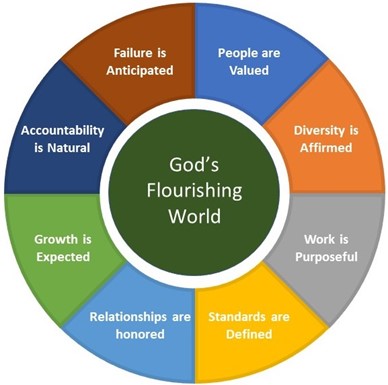October 26, 2022
Serving leaders, like all leaders, have and use authority. Authority is the legitimate power that gives them the right to act in their role as a leader. But many serving leaders may find the subject of authority a bit awkward. Is authority good or bad? How does it fit with the concept of serving others? In this series we’ll examine how serving leaders view and use authority. First, a glimpse at the life of David reveals that serving leaders respect the authority of those above them. David was anointed to be king, but Saul was still on the throne and was chasing David and his men. Twice, David had an easy opportunity to kill Saul and take the kingdom. On one of these occasions, David cut off the corner of Saul’s robe.
5Afterward, David was conscience-stricken for having cut off a corner of his robe. 6He said to his men, “The Lord forbid that I should do such a thing to my master, the Lord’s anointed, or lay my hand on him; for he is the anointed of the Lord.” 7With these words David sharply rebuked his men and did not allow them to attack Saul. And Saul left the cave and went his way (1 Samuel 24: 5-7, NIV).
David’s restraint shows remarkable respect for the authority of Saul even when Saul was seeking to kill him. David acknowledged that Saul was the king and respected his position even when he didn’t agree with the actions of the king. David’s response shows serving leaders the results of respect for those in authority over them.
Respect for authority builds character.
This period was a very difficult time in David’s life as he was chased by king Saul. It was a time that his character was tested and shaped in powerful ways. Most significantly, David learned that before he should be in authority, he had to learn to be under authority. This is always a difficult lesson for leaders and much more difficult when the person in authority is not a good leader! But serving leaders respect the authority of those over them and allow God to shape their character as they show respect by their words and actions.
Respect for authority builds trust
David acted with respect for authority because it was the right thing to do. But his followers were also watching. As they saw David’s respect for king Saul they grew in their trust of David. They observed that he was “conscience-stricken” after cutting Saul’s robe. They heard him describe his enemy as “the anointed of the Lord.” As they watched him closely, they recognized that David was a leader they could trust. Serving leaders build trust with those who follow as they respect the authority of those over them.
Respect for authority builds people.
David’s actions challenged and shaped those who followed him. Although they initially disagreed with his position David’s respect for king Saul helped them grow. David helped them grow them by rebuking them when their values did not align with his. As these men witnessed David’s loyalty to Saul, they also became extremely loyal to David. These men would go on to do extraordinary exploits for David. They knew that because David had respect for authority, he would not misuse authority when he was in power. Serving leaders serve those who follow by respecting the authority of those above them. As they do so they build the people around them.
For further reflection and discussion:
- What is my attitude towards those in authority over me? Am I able to respect them even when I don’t agree with their decisions? How does my attitude impact the way I lead?
- How do I talk about those in authority over me? What impact does this have on my leadership as those who follow listen to my comments?
- How do I want those under my authority to view my leadership? Do I have this same view of those over me? How does this impact my ability to serve those under me?
Until next time, yours on the journey,
Jon Byler
In the next issue, we’ll look at how serving leaders accept authority.

